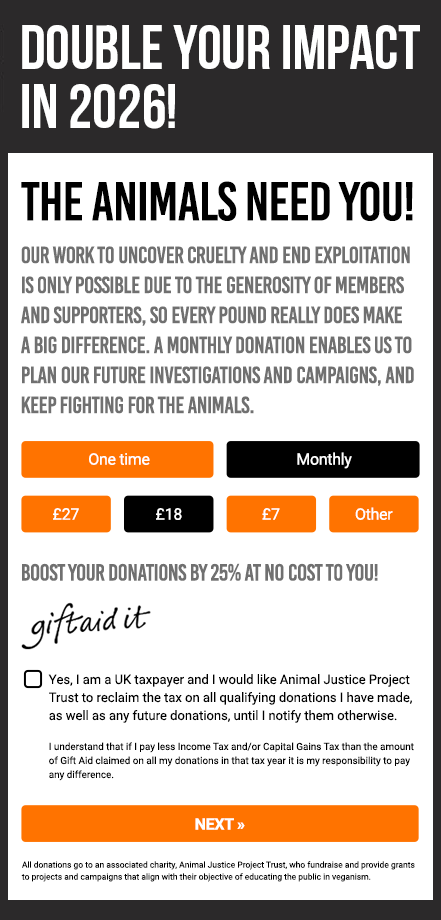
General
Half of Britain's badgers killed for dairy

Blog written by Claire Hamlett, a freelance journalist and contributor
Britain's native badgers are being wiped out to protect dairy farmers' profits
Efforts to eradicate Britain’s native badger population in England in response to bovine tuberculosis (bTB) may be about to ramp up. According to the Oxfordshire Badger Group (OBG), the Department for Environment, Food and Rural Affairs (Defra) plans to hold a consultation on the badger cull this autumn, and it will likely include proposals to pilot ‘epidemiological culling’ (epi-culling or EC) in Oxfordshire.
Epi-culling aims to kill 100 percent of badgers within a large area which has become a new 'hot spot' for bTB. It has already been used in Cumbria and on a trial basis in other counties over the past five years. An independent report submitted to parliament and Defra casts significant doubt on epi-culling as a way to reduce bTB spread, arguing that it is a distraction from more effective measures to identify and control the disease in cattle. In other words, if epi-culling takes place, it will wipe out badger communities and won’t even have the desired effect of eradicating bTB.
According to the Badger Trust, the cull, which has been running for ten years, may already be causing some badger communities to go extinct, with setts sitting empty for the first time in parts of Gloucestershire, Somerset, Devon and Cornwall.

Why are badgers being 'culled'?
Defra and the cattle farming sector claim that badgers can act as a reservoir for bTB, spreading it to cattle when they come into contact with them on farms. Culling badgers is the main measure used by Defra and the industry to stop the spread of the disease which, when detected in a cow herd, can result in the entire herd being slaughtered.
The Badger Trust disputes the claim that badgers are reservoir hosts, citing the Defra-commissioned Badgers Found Dead Study (BFDS), published in November 2020, which shows that very few culled badgers are found to have been carrying bTB in post-mortem testing. Various Wildlife Trusts also oppose the cull and want to see it replaced with badger and cattle vaccination as quickly as possible.
Defra even acknowledges that badgers are not the main source of infection, noting that bTB is “mainly spread into new herds through the movement of infected cattle that have not been detected” and can also spread through “contaminated equipment, animal waste, feed and pasture.” Based on evidence of insufficient cattle biosecurity, the Badger Trust argues that improving biosecurity measures and cattle testing, as well as boosting efforts to develop a cattle vaccine, will be far more effective than killing badgers.
Badgers are culled either by being trapped in cages and shot or by free shooting. The cull has been condemned as inhumane by conservationists and the vet who chaired an independent expert group on the cull, which found that thousands of badgers took more than five minutes to die in agony after being shot.

The badger cull in Oxfordshire
Badger culling began in Oxfordshire in 2020 as one of 11 new cull areas, initially as a response to ‘spillover’ of bTB from neighbouring counties. It has since expanded to cover more than half the county, with between 5000 and 6000 shot so far. In addition to the existing cull, a bTB ‘cluster pilot’ was launched in 2022 to create a coordinated network of farmers and landowners in bTB hot spots, which OBG fears would “provide a very efficient platform for epi-culling in the designated cluster areas.”
Before culling came to Oxfordshire, volunteers were already working hard to vaccinate badgers, precisely so that culling would not be needed. Nine of the other cull zones introduced in 2020 also had vaccination programs already established. At the time, vaccination volunteers wanted to see Defra gather evidence on the effectiveness of vaccinations, but instead it let shooting start, undermining the work that had been done to protect badgers up to that point.
Oxfordshire’s badger population has provided most of the knowledge we have on Britain’s badgers. The Badger Project run by the University’s Wildlife Conservation Research Unit (WildCRU) has been gathering data on the badgers in Wytham Woods on the edge of Oxford for 30 years, producing invaluable socio-ecological knowledge about badgers as well as about the threats faced by a range of species in changing environments. But Oxford University is also where scientists designed the randomised badger cull that has been deployed by Defra and the cattle farming sector since 2013.
When will the badger cull end?
Defra announced in 2020 that badger culling would be phased out by 2025, but later said it would retain it as a policy option after that date. It has also released new culling licences since the 2020 announcement, meaning that the killing is ramping up before it supposedly ends. More than 210,000 badgers have been slaughtered in England since 2013 – that’s roughly half of the UK’s badger population.
In the meantime, volunteers have continued to put in the work to vaccinate badgers and convince more farmers and landowners to choose vaccination over culling. Hunt saboteurs go out every culling season to stop shooters from killing badgers, and Wounded Badger Patrols try to find and save any badgers who have been shot but not yet died.
As always,
For the animals.

.png)


.png)













.png)